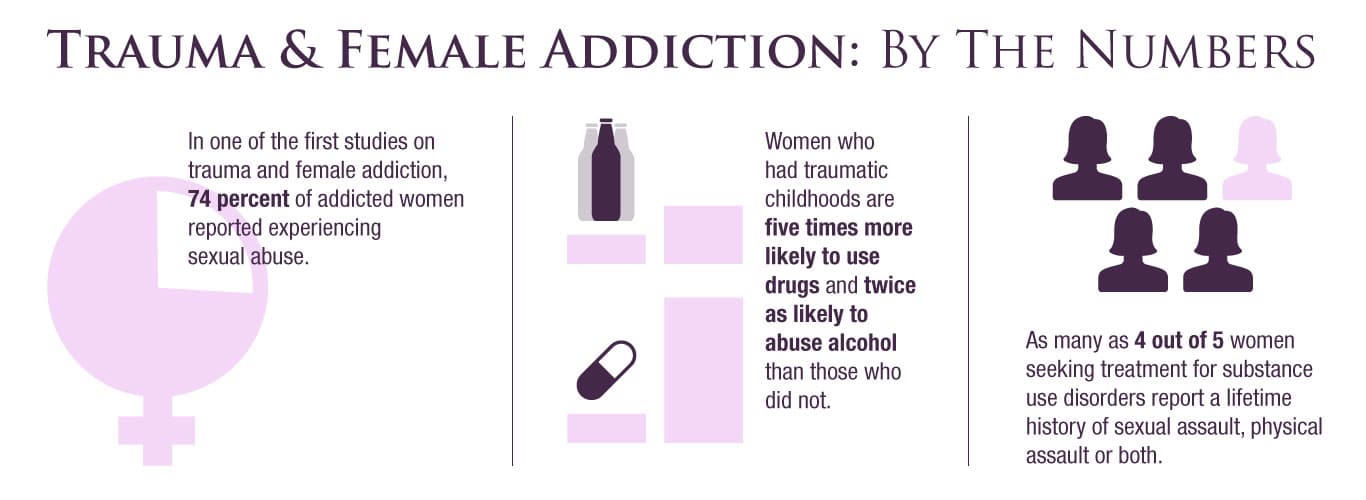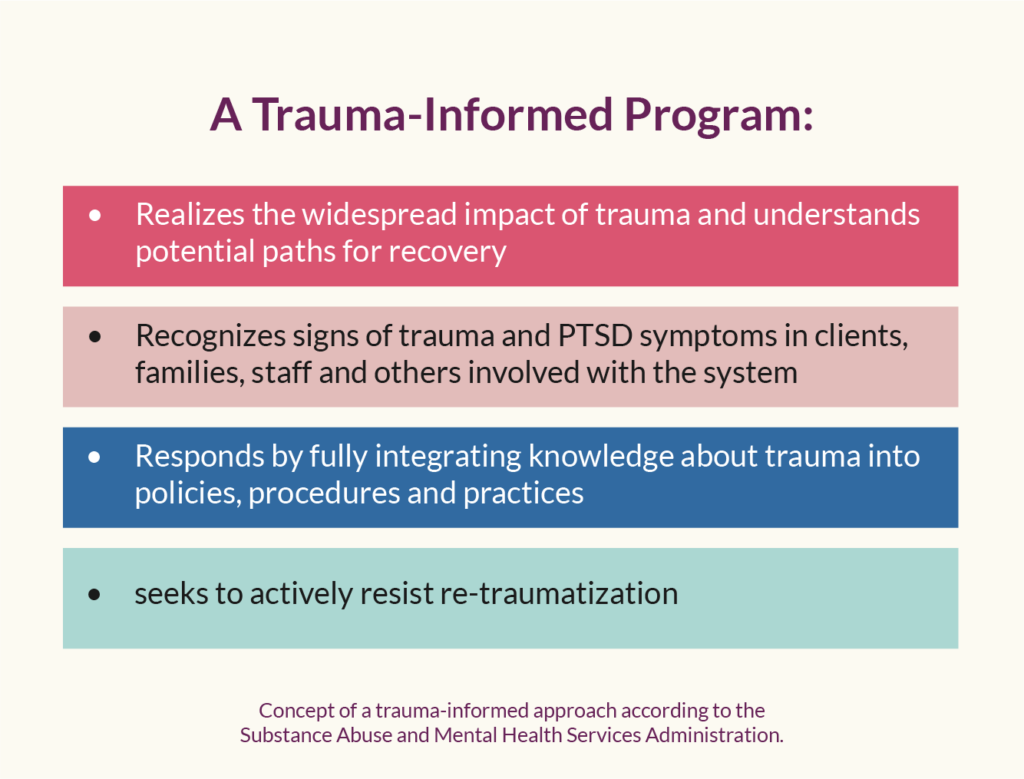Female addiction treatment has evolved over the last few decades. With an increased understanding of what causes women to abuse alcohol and drugs, treatment professionals have a better understanding of how to treat them. In the past, focus was placed solely on the addiction, with the assumption that other problems would be resolved during rehab or be treated by a psychological professional down the road. Today, treatment is a much more holistic endeavor, and, as a result, it’s become apparent that trauma plays a significant role in female addiction.
When the Past Affects the Present
While the word tends to conjure images of war and destruction, trauma is an emotional response to any distressing event, such as sexual abuse, childhood abuse, an accident, or a natural disaster. You don’t have to personally experience a traumatic event to suffer its effects; witnessing it can be just as detrimental.
Furthermore, a trauma can be more passive in nature, such as experiencing neglect or stigmatization related to gender, sexual orientation, race or poverty.
What makes trauma so destructive is that the impact of abuse, neglect, disaster, war and other harmful experiences can linger long after the event has ended. With most or all of the senses involved, the sensations end up getting recorded and stored in the brain, potentially leaving deep psychological scars. After experiencing or witnessing a traumatic event, it’s quite typical for people to suffer from varying degrees of stress, depression, anxiety and in severe cases, post-traumatic stress disorder (PTSD).
Overcoming an addiction from substances or alcohol can be a very hard journey, and it’s important to have a trusted facility and staff by your side while you do it. Behavioral Health Centers is here to offer all our resources so you can live a happier and healthier life.
Ways to Overcome Trauma

Safety
Help yourself or your loved one secure physical, mental, emotional and relationship safety. First, you must be sure you or your loved one’s physical body is no longer in danger by removing yourself or her from the abusive relationship or use of substances. Mental safety involves having a more realistic view of oneself and the world, while emotional safety includes seeking help for emotional issues to increase emotional awareness and stability. Relationship safety often consists of creating boundaries in relationships to make them healthier.

Nutrition
Regularly eating healthy foods and drinking water is essential to overcoming the effects of trauma, especially if you’re dealing with addiction. Good nutrition is critical for both physical and mental health over the short and long term. In addition, individuals dealing with trauma or addiction often neglect their nutritional needs, resulting in a variety of physical and mental health consequences. Improving nutrition can be an important part of the recovery process from traumatic experiences and substance abuse.

Sleep
Without an adequate amount of sleep, the human body has a more difficult time rejuvenating or overcoming the harmful effects of stress, intrusive memories, and trauma. In fact, sleep deprivation is so detrimental that it has been used as a particularly effective form of torture for centuries, breaking down an individual’s will and self-worth. Don’t torture yourself by not getting adequate sleep each day. Even if you’re unable to sleep through the night at first, resting goes a long way in restoring calmness. Eventually, sleep can aid the body’s restorative powers.

Physical Activity
While it may feel like the last thing you want to do when dealing with the effects of trauma or addiction, engaging in physical exercise is a helpful way to handle stress and begin healing. Vigorous exercise also releases endorphins, causing you to feel a “runner’s high,” the same sensation of euphoria that accompanies a chemical high. In fact, a study of patients in treatment for substance abuse found that physical exercise can lead to a sense of accomplishment and increased confidence in staying sober.
Whether it’s walking, hiking or yoga, experiment with some options and try to make it a regular habit.

Sharing
Whether you’ve been denying or ignoring the painful experience for years, or you are the type who just needs to get things off your chest, talking and listening to others can do wonders for your mental well-being after trauma. Reach out to someone you trust and talk about what occurred in your life, or be there to listen to your loved one about what they experienced. You can mention your own experiences and discuss what worked for you. Avoid being judgmental or forcing your ideas, but rather, be a source of encouragement.

Patience
After a traumatic event, you or your loved one can suffer the effects long after the experience. If the event happened recently, remember that it’s important to pace yourself before jumping back into daily life, and allow sufficient time to recover. On the other hand, if you’re dealing with the residual effects of a long-passed experience, remember that the psychological scars will take time to heal – but they will if you devote time and effort to it.








